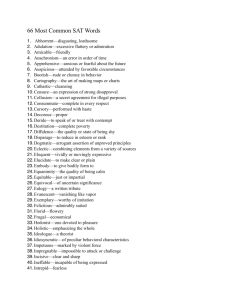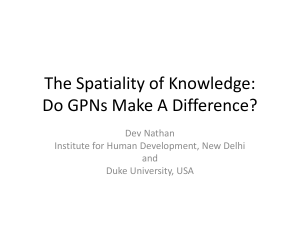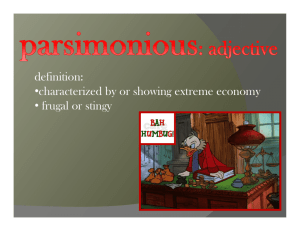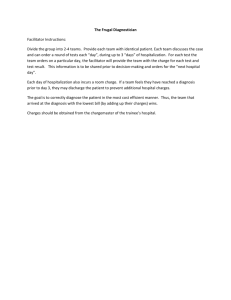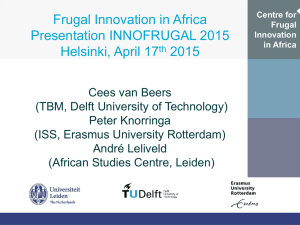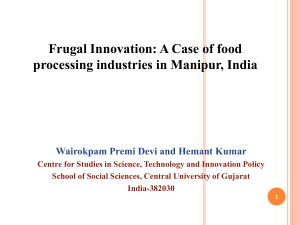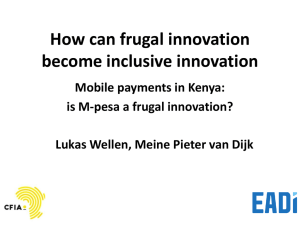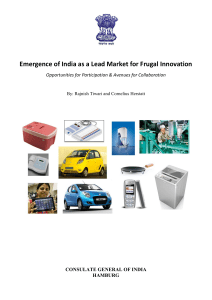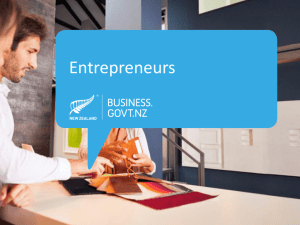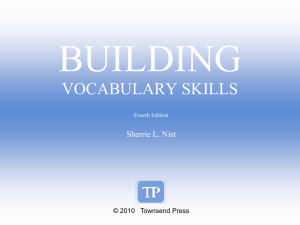innovation_done_in_frugal_fashion
advertisement
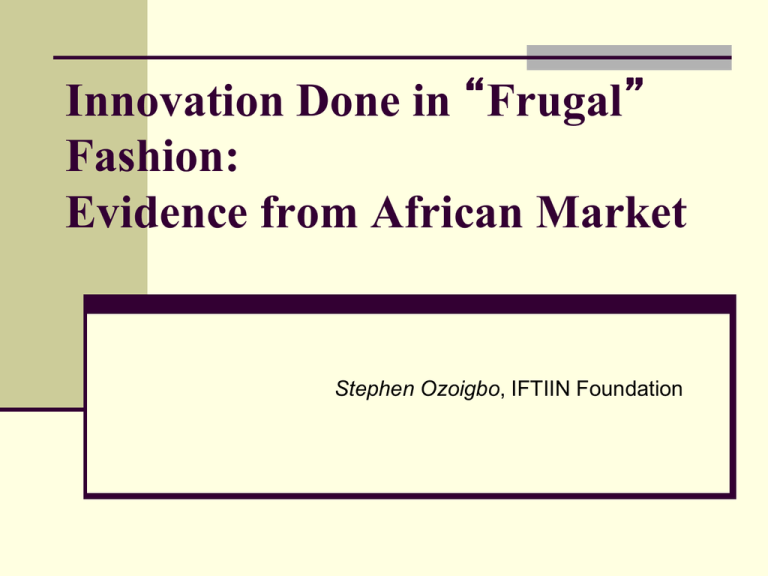
Innovation Done in “Frugal” Fashion: Evidence from African Market Stephen Ozoigbo, IFTIIN Foundation What is Innovation? Both a process and the end result “New”, “novel”, “original”… “Important” and “significant” Why Innovation is a Big Deal One of the primary ways of achieving product differentiation, and thus competitive advantage The single most important contributing factor to long-term productivity and economic growth (Grubler et al., 1999) Important to the advancement of society in general around the world What THEY Said about Innovation Some more… And Finally: Why you should NEVER listen to your customers “to create the future road map for your product or service”: “Entrepreneurs need to be reminded that it's not the job of their customers to know what they don't.” What Do They Mean? Innovation is a top-to-bottom, one-way linear process from the business (or more accurately, the entrepreneurs) to the end consumers The creativities (or genius) of the entrepreneurs are the most crucial elements for innovation Usually implies huge resources/investment requirement And the Academia Agrees Innovation Chain model (Carbon Trust 2002): That is Great, but… What about elsewhere in the world where Resources are significantly restrained? The customers know exactly what they need, but no existing product/service can meet their needs? Because the customers have limited means Emerging trend in innovation: Frugal innovation What is Frugal Innovation? Innovation done with limited resources, targeting customers with specific needs and limited means It entails making better things, not just cheaper things. Frugal innovation extends to services, not just products. Frugal innovation is about remodeling, not just defeaturing. Low cost does not mean low-tech: frugal innovation can require, or be combined with frontier science and technology. Our goal: We present our (preliminary) attempt to formulating a theoretic framework of frugal innovation based on case studies in African markets Why Africa? Good reasons for optimism for entrepreneurs in Africa Readily available resources for innovation remain limited in most of African nations Cases of successful stories Our Basic Research Framework The Cases Case 1: Solar-powered low cost hearing aids in Botswana by Godisa Technologies Case 2: Digital education in Kenya by eLimu and Safaricom Case 3: a mobile job matching application in Ghana by mPawa Case 4: mobile money transfer services in Kenya by M-PESA Some Common Patterns Identified from the Cases Active role for target customers Emphases on social issues South-to-south, bottom-up technology diffusion Long-term focus of business models Partnership between local innovators with expertise from developed nations Integrated Framework for Frugal Innovation (IFFI) How IFFI Fits into National Innovation System What Else Can Practitioners Do? Help to establish the relationship between developing economies and developed economies (circle 1) Increase Diasporas engagement in order to create visibility for frugal innovators, their technologies and products. Stimulate private capital flows to frugal innovation ecosystems through multistakeholder partnerships and matching funds from government agencies. What Else Can Practitioners Do? Provide policy suggestions regarding how to foster, facilitate, and promote such innovation (circle 2) Increase University based curriculum for Frugal Innovation (circle 3) Provide successful experience / learning lessons from other developing economies’ frugal innovation
